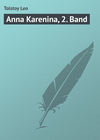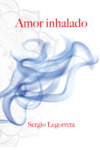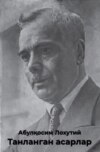Kitabı oku: «With Fire and Sword», sayfa 16
CHAPTER XVI
Some days passed by. It appeared to men as if the vault of heaven had suddenly dropped on the Commonwealth. Jóltiya Vodi; Korsún; the destruction of the armies of the crown, ever victorious hitherto in struggles with the Cossacks; the capture of the hetmans; the awful conflagration in the whole Ukraine; slaughters, murders, unheard of since the beginning of the world, – all these came so suddenly that men almost refused to believe that so many misfortunes could come upon one land at a time. Many, in fact, did not believe it; some became helpless from terror, some lost their senses, some prophesied the coming of antichrist and the approach of the day of judgment. All social ties were severed; all intercourse between people and families was interrupted. Every authority ceased; distinction of persons vanished. Hell had freed from its chains all crimes, and let them out on the world to revel; therefore murder, pillage, perfidy, brutality, violence, robbery, frenzy, took the place of labor, uprightness, and conscience. It seemed as though henceforth people would live not through good, but through evil; that the hearts and intentions of men had become inverted, and that they held as sacred that which hitherto had been infamous, and that as infamous which hitherto had been sacred. The sun shone no longer upon the earth, for it was hidden by the smoke of conflagrations; in the night, instead of stars and moon, shone the light of fires. Towns, villages, churches, palaces, forests, went up in flames. People ceased to converse; they only groaned or howled like dogs. Life lost its value. Thousands perished without an echo, without remembrance. And from out all these calamities, deaths, groans, smoke, and burnings, there rose only one man. Every moment loftier and higher, every moment more terribly gigantic, he wellnigh obscured the light of day, and cast his shadow from sea to sea. That man was Bogdan Hmelnitski.
A hundred and twenty thousand men, armed and drunk with victory, stood ready at his nod. The mob had risen on all sides; the Cossacks of the towns joined him in every place. The country from the Pripet to the borders of the Wilderness was on fire. The insurrection extended in the provinces of Rus, Podolia, Volynia, Bratslav, Kieff, and Chernigoff. The power of the hetman increased each day. Never had the Commonwealth opposed to its most terrible enemy half the forces which he then commanded. The German emperor had not equal numbers in readiness. The storm surpassed every expectation. The hetman himself did not recognize at first his own power, and did not understand how he had risen so high. He shielded himself yet with justice, legality, and loyalty to the Commonwealth, for he did not know then that he might trample upon these expressions as empty phrases; but as his forces grew there rose in him that immeasurable, unconscious egotism the equal of which is not presented by history. The understanding of good and evil, of virtue and vice, of violence and justice, were confounded in the soul of Hmelnitski with the understanding of injuries done him, or with his personal profit. That man was honorable who was with him; that man was a criminal who was against him. He was ready to complain of the sun, and to count it as a personal injustice if sunshine were not given at his demand. Men, events, nay, the whole world, he measured with his own ego. But in spite of all the cunning, all the hypocrisy of the hetman, there was a kind of deformed good faith in this theory of his. All Hmelnitski's crimes flowed from this theory, but his good deeds as well; for if he knew no bounds in his cruelty and tyranny to an enemy, he knew how to be thankful for every even involuntary service which was rendered him.
Only when he was drunk did he forget even good deeds, and bellowing with fury, with foam on his lips, issue bloody orders, for which he grieved afterward. And in proportion as his success grew, was he oftener drunk, for unquiet took increasing possession of him. It would seem that triumph carried him to heights which he did not wish to occupy. His power amazed other men, but it amazed himself too. The gigantic hand of rebellion seized and bore him on with the swiftness of lightning and inexorably. But whither? How was all this to end? Commencing sedition in the name of his own wrongs, that Cossack diplomat might calculate that after his first successes, or even after defeats, he could begin negotiations; that forgiveness would be offered him, satisfaction and recompense for injustice and injuries. He knew the Commonwealth intimately, – its patience, inexhaustible as the sea; its compassion, knowing neither bounds nor measure, which flowed not merely from weakness, for pardon was offered Nalivaika when he was surrounded and lost. But after the victory at Jóltiya Vodi, after the destruction of the hetmans, after the kindling of civil war in all the southern provinces, affairs had gone too far. Events had surpassed all expectations, and now the struggle must be for life and death. To whose side would victory incline?
Hmelnitski inquired of soothsayers, took counsel of the stars, and strained his eyes into the future, but saw nothing ahead save darkness. At times, therefore, an awful unquiet raised the hairs on his head, and in his breast despair raged like a whirlwind. What will be? – what will be? For Hmelnitski, observing more closely than others, understood at once, better than many, that the Commonwealth knew not how to use its own forces, – was unconscious of them, – but had tremendous power. If the right man should grasp that power in his hand, who could stand against him? And who could guess whether terrible danger, the nearness of the precipice and destruction, might not put an end to broils, internal dissensions, private grievances, rivalries of magnates, wrangling, the babbling of the Diets, the license of the nobility, and the weakness of the king? Then a half-million of escutcheoned warriors alone could move to the field, and crush Hmelnitski, even if he were aided not only by the Khan of the Crimea, but by the Sultan of Turkey himself.
Of this slumbering power of the Commonwealth the late King Vladislav was aware, as well as Hmelnitski; and therefore he labored all his life to initiate a mortal struggle with the greatest potentate on earth, for only in this way could that power be called into life. In accordance with this conviction, the king did not hesitate to throw sparks on the Cossack powder. Were the Cossacks really destined to cause that inundation, in order to be overwhelmed in it at last?
Hmelnitski understood, too, that in spite of all the weakness of the Commonwealth its resistance was tremendous. Against this Commonwealth, so disorderly, ill-united, insubordinate, the Turkish waves, the most terrible of all were broken as against a cliff. Thus it was at Khotím which he saw almost with his own eyes. That Commonwealth, even in times of weakness, planted its standards on the walls of foreign capitals. What resistance will it offer, what will it not do when brought to despair, when it must either die or conquer?
In view of this, every triumph of Hmelnitski was to him a new danger, for it hastened the moment when the sleeping lion would wake, and brought negotiations nearer the impossible. In every victory lay a future defeat, and in every intoxication bitterness at the bottom. After the storm of the Cossacks would come the storm of the Commonwealth. Already it seemed to Hmelnitski that he heard its dull and distant roar. Behold, from Great Poland, Prussia, populous Mazovia, Little Poland, and Lithuania will come crowds of warriors! They need but a leader.
Hmelnitski had taken the hetmans captive, but in that good fortune there lurked also an ambush of fate. The hetmans were experienced warriors, but no one of them was the man demanded by that period of tempest, terror, and distress. The leader at that time could be but one man. That man was Prince Yeremi Vishnyevetski. Just because the hetmans had gone into captivity the choice would be likely to fall on the prince. Hmelnitski in common with all had no doubt of this.
Meanwhile news flew from beyond the Dnieper to Korsún, where the Zaporojian hetman had stopped to rest after the battle, that the terrible prince had started for Lubni; that on the road he was stamping out rebellion; that after his passage villages, hamlets, towns, farmhouses, had vanished, and the places in which they had been were bristling with bloody impaling-stakes and gibbets. Terror doubled and trebled the number of his forces; it was said that he led fifteen thousand of the choicest troops to be found in the Commonwealth.
In the Cossack camp, shortly after the battle at Krutaya Balka, the cry, "Yeremi is coming!" was heard among the Cossacks and spread a panic among the mob, who began to run away unreasoningly. This alarm astonished Hmelnitski greatly.
He had his choice then, – either to march with all his power against the prince and seek him beyond the Dnieper, or, leaving a part of his forces to capture the castles of the Ukraine, move into the heart of the Commonwealth. An expedition against the prince was not without danger, Hmelnitski, in spite of the preponderance of his forces, might suffer defeat in a general engagement, and then all would be lost at once. The mob, who composed the great majority, gave evidence that they would flee at the very name of Yeremi. Time was necessary to change this mob into an army capable of facing the regiments of the prince. Besides, Yeremi would not be likely to accept a general battle, but would be content with defence in castles and partisan war which might last entire months, if not years, and by that time the Commonwealth would surely collect new forces and move to reinforce him.
Hmelnitski therefore determined to leave Vishnyevetski beyond the Dnieper, strengthen himself in the Ukraine, organize his power, then march on the Commonwealth and force it to terms. He calculated that the suppression of the rebellion on the east of the Dnieper alone would occupy for a long time all the forces of the prince, and leave a free field to himself. He hoped therefore to foment rebellion by sending single regiments to aid the mob, and finally he thought it would be possible to deceive the prince by negotiations, and retard matters by waiting till the power of Vishnyevetski should be broken. In view of this he remembered Pan Yan.
Some days after Krutaya Balka, and on the very day of the alarm of the mob, he had Skshetuski called before him. He received him in the house of the starosta, in presence of Krechovski only, who was long known to Skshetuski; and after he had greeted him kindly, though not without a lofty air corresponding to his present position, he said, -
"Lieutenant Skshetuski, for the kindness which you have shown me I have ransomed you from Tugai Bey and promised you freedom. Now the hour has come. I give you this baton of a colonel to secure a free passage, in case any of the forces should meet you, and a guard for protection against the mob. You may return to your prince."
Skshetuski was silent; no smile of joy appeared on his face.
"But are you able to take the road, for I see that illness of some kind is looking out through your eyes?"
Pan Yan, in truth, seemed like a shadow. Wounds and recent events had weakened the young giant, who looked as though he could give no promise of surviving till the morrow. His face had grown yellow, and the black beard, long untrimmed, added to the wretchedness of his appearance. This rose from internal suffering. The knight's heart was almost broken. Dragged after the Tartar camp, he had been a witness of all that had happened since they issued from the Saitch. He had seen the defeat and disgrace of the Commonwealth, and the hetmans in captivity; he had seen the Cossack's triumph, pyramids of heads cut from fallen soldiers, noblemen hanged by the ribs, the breasts of women cut off, and maidens dishonored; he had seen the despair of daring and the baseness of fear; he had seen everything, endured everything, and suffered the more because the thought was in his bosom and brain, like the stab of a knife, that he himself was the remote cause, for he and no other had cut Hmelnitski loose from the lariat. But was a Christian knight to suppose that succor given one's neighbor could bring such fruit? His pain therefore was beyond measure.
When he asked himself what was happening to Helena, and when he thought what might happen if an evil fate should keep her in Rozlogi, he stretched his hands to heaven and cried in a voice in which quivered deep despair, almost a threat: "God! take my life, for I am punished beyond my deserts!" Then he saw that he was blaspheming, fell on his face, and prayed for salvation, for forgiveness, for mercy on his country and that innocent dove, who maybe had called in vain for God's help and his. In one word, he had suffered so much beyond his power that the freedom granted did not rejoice him; and that Zaporojian hetman, that conqueror who wished to be magnanimous by showing his favor, made no impression upon him at all. Seeing this, Hmelnitski frowned and said, -
"Hasten to take advantage of my favor, lest I change my mind; for it is my kindness and belief in a just cause which makes me so careless as to provide an enemy for myself, for I know well that you will fight against me."
To which Skshetuski answered: "If God gives me strength."
And he gazed at Hmelnitski, till he looked into the depth of his soul. The hetman, unable to endure the gaze, cast his eyes to the ground, and after a moment said, -
"Enough of this! I am too powerful to be troubled by one sick man. Tell the prince your lord what you have seen, and warn him to be less insolent; for if my patience fails I will visit him beyond the Dnieper, and I do not think my visit will be pleasant to him."
Skshetuski was silent.
"I say, and repeat once more," added Hmelnitski, "I am carrying on war, not with the Commonwealth, but with the kinglets; and the prince is in the first rank among them. He is an enemy to me and to the Russian people, an apostate from our church, and a savage tyrant. I hear that he is quelling the uprising in blood; let him see to it that he does not spill his own."
Thus speaking, he became more and more excited, till the blood began to rush to his face, and his eyes flashed fire. It was evident that one of those paroxysms of anger and rage in which he lost his memory and presence of mind altogether was seizing him.
"I will command Krívonos to bring him with a rope!" cried he. "I will trample him under foot, and mount my horse on his back!"
Skshetuski looked down on the raging Hmelnitski, and then said calmly: "Conquer him first."
"Hetman," said Krechovski, "let this insolent noble go his way, for it does not become your dignity to be affected by anger against him; and since you have promised him freedom he calculates that either you will break your word or listen to his invectives."
Hmelnitski bethought himself, panted awhile, then said, -
"Let him go then, and give him a baton, as I have said, and forty Tartars, who will take him to his own camp, so that he may know that Hmelnitski returns good for good." Then turning to Pan Yan, he added: "You know that we are even now. I liked you in spite of your insolence, but if you fall into my hands again you will not escape."
Skshetuski went out with Krechovski.
"Since the hetman has let you off with your life," said Krechovski, "and you can go where you please, I tell you, for old acquaintance' sake, to seek safety in Warsaw rather than beyond the Dnieper, for you will not leave there alive. Your time has passed. If you were wise you would come to our side, but I know that it is useless to tell you this. You would rise as high as we."
"To the gallows," muttered Skshetuski.
"They would not give me the starostaship of Lita, but now I can take, not only one, but ten such places. We will drive out the Konyetspolskis, Kalinovskis, Pototskis, Lyubomirskis, Vishnyevetskis, Zaslavskis, and all the nobility, and divide their estates; which must be according to the will of God, for he has already given us two great victories."
Pan Yan was thinking of something else, and did not hear the prating of the colonel, who continued, -
"When after the battle I saw the high mighty hetman of the crown, my lord and benefactor, bound in Tugai Bey's quarters, and he was pleased immediately to call me a Judas and unthankful, I answered him: 'Serene, great voevoda! I am not unthankful, for when I shall be in possession of your castles and property, I will make you my under-starosta if you will promise not to get drunk.' Oh, ho! Tugai Bey will get ransom for those birds that he has caught, and therefore he spares them; were it not for that, Hmelnitski and I would talk differently to them. But see! the wagon is ready for you and the Tartars are on hand. Where do you wish to go?"
"To Chigirin."
"'As thou makest thy bed, so wilt thou sleep.' The Tartars will conduct you even to Lubni, for such are their orders. See, however, that your prince does not have them impaled, as he surely would Cossacks. This is why Tartars are given to you. The hetman has ordered that your horse be given you. Farewell! Remember us with kindness. Give our hetman's respects to your prince, and if he be persuaded to come to Hmelnitski with homage, he may find favor. Farewell!"
Pan Yan seated himself in the wagon, which the Tartars surrounded at once; and they moved on. It was difficult to pass through the square, which was completely packed with Zaporojians and the mob. Both were cooking kasha for themselves, while singing songs over the victory of Jóltiya Vodi and Korsún, composed by blind minstrels, a multitude of whom came from all sides to the camp. Between the fires burning under the kasha kettles, lay here and there bodies of murdered women over whom orgies had taken place in the night, or stood pyramids of heads cut from the bodies of killed and wounded soldiers. These bodies and heads had begun to decay and give out an offensive odor, which however did not seem to be at all disagreeable to the assembled crowds. The town bore marks of devastation and the wild license of Zaporojians. Doors and windows were torn out; the shivered fragments of a thousand objects, mixed with hair and straw, covered the square. The eaves of houses were ornamented with hanged men, for the greater part Jews; and here and there the crowd amused themselves by clinging to the feet of pendent corpses and swinging on them.
On one side of the square were the black ruins of burnt buildings, among them those of the parish church; the ruins were hot, and smoke was rising from them. The odor of burning permeated the air. Beyond the burnt houses was the Tartar camp, which Skshetuski had to pass, and crowds of captives watched by Tartar guards. Men from the neighborhood of Chigirin, Cherkasi, and Korsún, who had been unable to hide, or who had not fallen under the axe of the mob, went into captivity. The prisoners were soldiers, captured in the two battles; and townspeople of the region about, who had been unable or unwilling to join the uprising; nobles living on their own lands, separately or in communes; officials of under-starostas; owners of small tracts of land; village nobles of both sexes, and children. There were no old men, for the Tartars killed them as unfit for sale. They had driven in also whole Russian villages and settlements, – an act which Hmelnitski did not dare to oppose. In many places it happened that men went to the Cossack camp, and as a reward the Tartars burned their cottages, and carried off their wives and children. But in the universal letting loose and growing wild of souls, no one inquired or thought about that. The mob who took arms gave up their native villages, their wives and children. Their wives were taken from them; but they took other and better women, for they were Polish. After they had sated themselves with the charms of these they killed them, or sold them to Tartars. Among the prisoners also were young matrons of the Ukraine, tied by threes and fours to one rope with young women of the petty nobility. Captivity and misfortune equalized condition.
The sight of these beings shocked the lieutenant to the bottom of his soul, and roused a thirst for vengeance. Tattered, half naked, exposed to the vile jeers of pagans who were loitering through curiosity in crowds on the square, pushed, struck, or kissed by disgusting lips, they lost their memory and will. Some sobbed, or resisted loudly; others, with staring eyes and bewildered faces, yielded passively to everything. Here and there was heard a shriek wrested from some captive, slaughtered without mercy for an outburst of despairing resistance. The cracking of whips, the whistling of ox-hide lashes, was heard among the crowd of men, and was mingled with screams of pain, with the whining of children, the bellowing of cattle, and the neighing of horses. The booty was not yet divided and arranged for removal; therefore the greatest disorder prevailed everywhere. Wagons, horses, horned cattle, camels, sheep, women, men, heaps of stolen clothing, vessels, arms, – all, thrust into one enormous camp, waited arrangement and order. Scouting-parties drove in from time to time new crowds of people and herds of cattle, laden barges sailed down the Kos, and from the chief camp new people arrived continually to sate their eyes with the sight of the collected wealth. Some, drunk on kumis or vudka, dressed in strange costumes, – in chasubles and surplices, in robes of Russian priests, or even in women's clothes, – began to dispute, quarrel, and scream over the possession of certain articles. The Tartar herdsmen, sitting on the ground among the cattle, amused themselves, – some by giving piercing melodies on their pipes, others by playing dice or beating one another with clubs. Crowds of dogs which had followed their masters barked and howled plaintively.
Skshetuski at length passed this human gehenna, full of groans, tears of misery, and hellish sounds. He had expected to breathe more freely; but the moment he was beyond the camp a new and terrible sight struck his eyes. In the distance was the camp proper, from which came a continual neighing of horses, and near which thousands of Tartars swarmed in the field by the side of the road leading to Cherkasi. The youthful warriors amused themselves with shooting for exercise from bows at the weaker prisoners, or the sick who were unable to endure the long road to the Crimea. A number of bodies lay around, thrown on the road, as full of holes as a sieve; some of them still quivered convulsively. Those at whom they were shooting hung bound by the hands to trees near the roadside. Among these were also old women. Shouts accompanied laughter of approval for good arrow-shots.
"Fine fellows! The bow is in good hands!"
Around the principal camp they were dressing thousands of cattle and horses for the sustenance of the warriors. The ground was drenched with blood. The sickening odor of raw flesh stifled the breath in the breast, and among the piles of meat red Tartars hurried around with knives in their hands. The day was oppressive, the sun scorching. Skshetuski with his escort barely reached the open field after an hour's travelling; but from afar there came for a long time the tumult and bellowing of cattle from the main camp. Along the road traces of the passage of plunderers were evident. Here and there were burnt gardens, chimneys standing alone, young grain trodden under foot, trees broken, cherry-orchards near the cottages cut down for fuel. On the high-road lay thickly, in one place, the carcasses of horses; in another the bodies of men mutilated fearfully, blue, swollen, and above and over them flocks of crows and ravens, flying with tumult and noise at the approach of people. The bloody work of Hmelnitski thrust itself upon the sight everywhere, and it was difficult to understand against whom the man had raised his hands, since his own country groaned first of all under the weight of misfortune.
In Mleyeff, Skshetuski met Tartar parties urging on new crowds of prisoners. Gorodische was burned to the ground. There remained standing only the stone bell-tower of the church, and the old oak-tree in the middle of the square, covered with terrible fruit; for upon it were suspended a number of tens of little Jews, hanged there three days before. There were killed also many nobles from Konoplanka, Staroselo, Venjovka, Balaklei, Vodachevo. The town itself was empty; for the men had gone to Hmelnitski, and the women, children, and old men had fled to the woods before the expected invasion by the armies of Prince Yeremi. From Gorodische, Skshetuski went through Smila, Zabotin, and Novoselyets to Chigirin, stopping only to rest his horse. They entered the town on the second day in the afternoon. War had spared the place; only a few houses were wrecked, and among them that of Chaplinski was razed to the ground. In the town was stationed Colonel Naókolopályets, and with him a thousand Cossacks; but both he and they and the whole population lived in the greatest terror, for they all seemed convinced that the prince might come at any moment and wreak vengeance such as the world had never heard of. It was unknown who had circulated these reports, or where they had come from; fear perhaps had created them. Enough that it was repeated continually that the prince was sailing on the Sula, that he was already on the Dnieper, had burned Vasyutinets, and had cut off the people in Borysi, and that every approach of men on horseback caused boundless panic. Skshetuski caught up these reports eagerly; for he understood that though false they prevented the extension of the rebellion beyond the Dnieper, where the hand of the prince pressed directly.
Skshetuski wished to learn something more certain from Naókolopályets; but it appeared that the lieutenant-colonel, like others, knew nothing about the prince, and would have been glad himself to extract some news from Skshetuski. Since all boats, large and small, had been brought over to that bank of the river, fugitives from the other shore did not come to Chigirin.
Skshetuski, without waiting longer in Chigirin, gave orders to be ferried over, and set out for Rozlogi. The assurance that he would soon convince himself of what had happened to Helena, and the hope that perhaps she was safe, or had taken refuge with her aunt and the princes in Lubni, brought back his strength and health. He left the wagon for his horse, and urged without sparing his Tartars, who, thinking him an envoy and themselves attendants given under his command, dared not oppose him. They flew on therefore as if hunted. Behind them rose yellow clouds of dust hurled up by the hoofs of the horses. They swept past farms, gardens, and villages. The country was empty, the habitations of men depopulated; for a long time they could not find a living soul. It is likely, too, that every one hid at their approach. Here and there Skshetuski gave orders to search in orchards and bee-gardens, grain-mows and the roofs of barns, but they discovered no man.
Beyond Pogrebi one of the Tartars first espied a certain human form trying to hide among the rushes which grew on the banks of the Kagamlik. The Tartars rushed to the river, and a few minutes later brought before Skshetuski two persons entirely naked. One of them was an old man; the other a stripling, perhaps fifteen or sixteen years of age. The teeth of both were chattering with terror, and for a long time they were unable to utter a word.
"Where are you from?" asked Skshetuski.
"Nowhere, sir!" answered the old man. "We go begging with a lyre, and this dumb boy leads me."
"Where are you coming from now, – from what village? Speak boldly; nothing will happen to you."
"We, sir, travelled through all the villages, till some devil stripped us. We had good boots, he took them; we had good caps, he took them; good coats from people's charity, he took them, and did not leave the lyre."
"I ask you, you fool, from what village you come."
"I don't know, sir, – I am an old man. See, we are naked; we are freezing at night, in the daytime we ask the charity of people to cover us and feed us; we are hungry!"
"Listen, louts! Answer my question, or I will hang you!"
"I don't know, my lord. If I am this or that, or there will be anything, let me alone."
It was evident that the old man, unable to decide who his questioner was, determined not to give any answer.
"Were you in Rozlogi, where the Princes Kurtsevichi live?"
"I don't know, sir."
"Hang him!" cried Skshetuski.
"I was, sir," cried the old man, seeing there was no trifling.
"What did you see there?"
"We were there five days ago, and then in Brovarki; we heard that the knights had come there."
"What knights?"
"I don't know, sir; one said Poles, another said Cossacks."
"To horse!" shouted Skshetuski to the Tartars.
The party rushed on. The sun was setting precisely as on that day when the lieutenant, after meeting Helena and the princess on the road, rode by them at the side of Rozvan's carriage. The Kagamlik shone with purple, just as it had then; the day went to rest with more quiet, more warmth and calm. But that time Pan Yan rode on with a breast full of happiness and awakening feelings of delight; now he rushes on like a condemned man, driven by a whirlwind of trouble and evil forebodings. The voice of despair calls from his soul, "Bogun has carried her away, you will never see her again!" and a voice of hope, "She is safe!" And these voices so pulled him between them that they almost tore his heart asunder. He urged the horses to their last strength. One hour followed another. The moon rose and mounted higher and higher, grew paler and paler. The horses were covered with foam, and snorted heavily. They rushed into the forest, it was passed in a flash; they rushed into the ravine; beyond the ravine was Rozlogi. Another moment, and the fate of the knight would be settled. The wind whistles into his ears from the speed, his cap falls from his head, the horse groans under him as if ready to drop. Another moment, and the ravine opens. At last! at last!




















